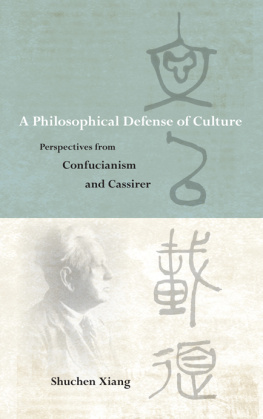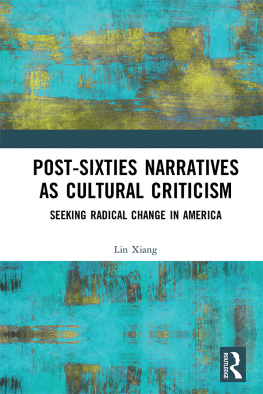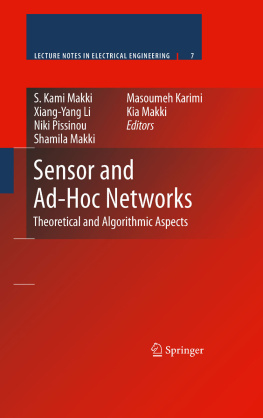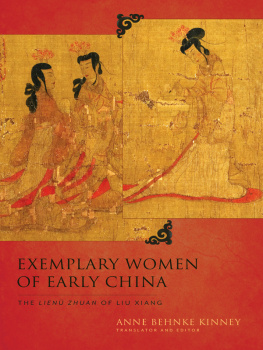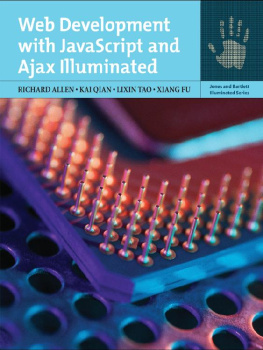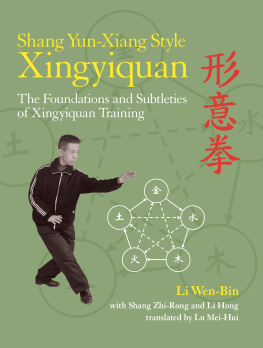Shuchen Xiang - A Philosophical Defense of Culture
Here you can read online Shuchen Xiang - A Philosophical Defense of Culture full text of the book (entire story) in english for free. Download pdf and epub, get meaning, cover and reviews about this ebook. year: 2020, publisher: SUNY Press, genre: Religion. Description of the work, (preface) as well as reviews are available. Best literature library LitArk.com created for fans of good reading and offers a wide selection of genres:
Romance novel
Science fiction
Adventure
Detective
Science
History
Home and family
Prose
Art
Politics
Computer
Non-fiction
Religion
Business
Children
Humor
Choose a favorite category and find really read worthwhile books. Enjoy immersion in the world of imagination, feel the emotions of the characters or learn something new for yourself, make an fascinating discovery.
- Book:A Philosophical Defense of Culture
- Author:
- Publisher:SUNY Press
- Genre:
- Year:2020
- Rating:3 / 5
- Favourites:Add to favourites
- Your mark:
- 60
- 1
- 2
- 3
- 4
- 5
A Philosophical Defense of Culture: summary, description and annotation
We offer to read an annotation, description, summary or preface (depends on what the author of the book "A Philosophical Defense of Culture" wrote himself). If you haven't found the necessary information about the book — write in the comments, we will try to find it.
A Philosophical Defense of Culture — read online for free the complete book (whole text) full work
Below is the text of the book, divided by pages. System saving the place of the last page read, allows you to conveniently read the book "A Philosophical Defense of Culture" online for free, without having to search again every time where you left off. Put a bookmark, and you can go to the page where you finished reading at any time.
Font size:
Interval:
Bookmark:

A Philosophical Defense of Culture
SUNY series in Chinese Philosophy and Culture
Roger T. Ames, editor
A Philosophical Defense of Culture
Perspectives from Confucianism and Cassirer
SHUCHEN XIANG

Cover image of Ernst Cassirer from Wikimedia Commons.
Published by State University of New York Press, Albany
2021 State University of New York
All rights reserved
Printed in the United States of America
No part of this book may be used or reproduced in any manner whatsoever without written permission. No part of this book may be stored in a retrieval system or transmitted in any form or by any means including electronic, electrostatic, magnetic tape, mechanical, photocopying, recording, or otherwise without the prior permission in writing of the publisher.
For information, contact State University of New York Press, Albany, NY
www.sunypress.edu
Library of Congress Cataloging-in-Publication Data
Names: Xiang, Shuchen, author.
Title: A philosophical defense of culture : perspectives from Confucianism and Cassirer / Shuchen Xiang.
Description: Albany : State University of New York Press, [2021] | Series: SUNY series in Chinese Philosophy and Culture | Includes bibliographical references and index.
Identifiers: ISBN 9781438483191 (hardcover : alk. paper) | ISBN 9781438483214 (ebook)
Further information is available at the Library of Congress.
10 9 8 7 6 5 4 3 2 1
Dedicated to my mother
Contents
Acknowledgments
This project has been long in gestation; I first conceived the project around 201213. The various people, to whom I am indebted draws a map of the journey I have made for its materialization. From my time at Pennsylvania State University, I would like to thank my mentor Erica Fox Brindley for having always encouraged my intellectual independence. I am also grateful to Courtney Rong Fu for her great kindness to me then. From Princeton, I would like to thank Jessica Xiaomin Zu, for many things. From my time at the University of Hawaii, I would like to thank Professor Chung-ying Cheng for introducing me to the Yijing. I am furthermore extremely grateful to Professor Cheng for having provided me with the many opportunities to present and develop my work. I am grateful for having received guidance from Professor David McCraw, whose infectious enthusiasm for the classics has inspired a whole generation of scholars educated at Hawaii; I feel privileged to count myself among them. Finally, I am very lucky to have received the kind attention of Professor Roger Ames during his last year there and his support throughout the gestation of this project. From the APA Eastern Division 2016, I would like to thank Professors Huaiyu Wang and Aaron Creller for their helpful comments on my work. From Aarhus University, I would like to thank Professor Guido Kreis for his personal guidance on this project; his help has been invaluable to me. I have gained enormously from his own work on Cassirer. I would like to thank Professor Michael Forster, from the University of Bonn, for providing me with the much needed platforms for developing my work. From the University of York, I would like to thank professors Peter Lamarque and Catherine Wilson for their kind attention to me during the earlier phases of this project. From Nanyang Technological University, I would like to thank Lili Zhang for the conversations that helped refine my ideas, and for me. Any mistakes are of course my own.
From SUNY Press, I would like to thank the two anonymous reviewers whose feedback helped me to gain some much needed perspective on the project and helped give it its final finish. I would also like to thank Mr. James Peltz for all his help in the submission process and in preparing the manuscript. I would also like to thank the copyeditor Gordon Marce for his grammatical expertise and the detailed attention he paid to my manuscript. Parts of the introduction have been previously published in Orientalism and Enlightenment Positivism: A Critique of Anglophone Sinology, Comparative Literature, and Philosophy, Pluralist 13, no. 2. Parts of chapter 2 have been previously published in Freedom and Culture: The Cassirerian and Confucian Account of Symbolic Formation, Idealistic Studies 47, no. 3, as well as The Symbolic Construction of Reality: The Xici and Ernst Cassirers Philosophy of Symbolic Forms, Journal of Chinese Humanities 4, no. 2. Parts of chapter 6 have been previously published in Organic Harmony and Ernst Cassirers Pluralism, Idealistic Studies 49, no. 3. I thank all these journals for permission to reuse these articles.
Finally, my thanks to Jacob Bender for having made so much possible, for making it all so much easier, and everything that much more enjoyable; and to my mother, who gave me everything. In some ways she is the inspiration for this project, for she embodies the living tradition that I find so much beauty in.
Abbreviations
I have abbreviated the major works of Cassirers that I have most copiously used, so that it is easier for the reader to see where I am citing from. These are listed below, along with the date that links each to the main reference list. I have used the author-date system for Cassirers other works.
| DI | Determinism and Indeterminism in Modern Physics: Historical and Systematic Studies of the Problem of Causality (1956) |
| EM | An Essay on Man (1944) |
| FF | Freiheit und Form (Freedom and Form; 2001a) |
| KEH | The Kantian Element in Wilhelm von Humboldts Philosophy of Language (2013c) |
| KLT | Kants Life and Thought (1981) |
| LCS | The Logic of the Cultural Sciences (2000) |
| LM | Language and Myth (1946a) |
| MS | The Myth of the State (1946b) |
| NHPC | Naturalistic and Humanistic Philosophies of Culture (1961) |
| PSF 1 | Philosophy of Symbolic Forms, vol. 1, Language (1955a) |
| PSF 2 | Philosophy of Symbolic Forms, vol. 2, Mythical Thought (1955b) |
| PSF 3 | Philosophy of Symbolic Forms, vol. 3, The Phenomenology of Knowledge (1957) |
| PSF 4 | Philosophy of Symbolic Forms, vol. 4, The Metaphysics of Symbolic Forms (1996) |
| SF | Substance and Function, and Einsteins Theory of Relativity (1923) |
| SMC | Symbol, Myth, and Culture: Essays and Lectures of Ernst Cassirer, 19351945 (1979) |
| PE | The Philosophy of the Enlightenment (1951) |
| PK | The Problem of Knowledge: Philosophy, Science, and History since Hegel (1950) |
Introduction
Wen () is a term whose sophistication and significance for the Chinese tradition parallels that of Dao () and Qi (). It is a term that designates everything from natural patterns to the individual units that make up Chinese writing, to literature, to human culture itself. I argue that wen became such an important term to Chinese civilization because embedded in the term is the Chinese philosophy of culture and humanism. As Wing-tsit Chan writes, If one word could characterize the entire history of Chinese philosophy, that word would be humanismnot the humanism that denies or slights a Supreme Power, but one that professes the unity of man and Heaven. In this sense, humanism has dominated Chinese thought from the dawn of its history (Chan 1963, 3). It is because of a profound and dominant humanism in the Chinese tradition that the term
Font size:
Interval:
Bookmark:
Similar books «A Philosophical Defense of Culture»
Look at similar books to A Philosophical Defense of Culture. We have selected literature similar in name and meaning in the hope of providing readers with more options to find new, interesting, not yet read works.
Discussion, reviews of the book A Philosophical Defense of Culture and just readers' own opinions. Leave your comments, write what you think about the work, its meaning or the main characters. Specify what exactly you liked and what you didn't like, and why you think so.

